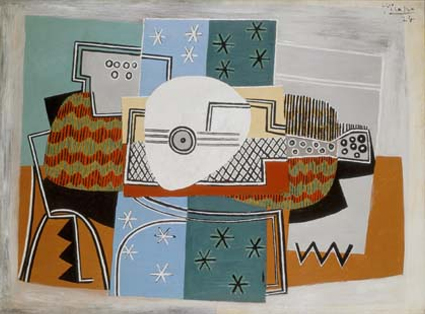Picasso and Modern British Art, at Tate Britain.
"Picasso and Modern British Art", at Tate Britain, looks suspiciously like an exhibition in search of a subject. In theory, the show explores Picasso’s transforming, catalytic effect on seven leading twentieth-century British artists. In practice, it papers over a dispiriting story of indifference, incomprehension and imperfectly assimilated influence.
The Picassos that have been assembled for the occasion are in themselves first-rate, a dazzling selection of paintings, drawings, reliefs, sculptures and collages from most periods of his life. These range from the tremblingly melancholic, neurasthenically pale image of a Girl in a Chemise of 1905, to such later masterpieces as the frenzied Three Dancers of 1925 and the convulsively fractured Weeping Woman of 1937. The works of modern British art gathered in implicit comparison are distinctly uneven, and frequently tangential. The organisers have missed a trick at the start of the exhibition, where it would have been interesting to juxtapose Picasso’s Blue Period work with some of the Symbolist canvases of Edward Burne-Jones and G.F. Watts, which certainly influenced him in his early years – the only real instance of influence running in that direction. Instead, this one-way street of a display begins with a selection of pictures by Duncan Grant and Wyndham Lewis, all supposedly inspired by Picasso’s example.
This seems an idiosyncratic decision. Wyndham Lewis was certainly well aware of Picasso’s example, but in his most self-consciously avant-garde Vorticist canvasses, such as the dizzyingly planimetric cityscape exhibited here, Workshop of 1914, he was plainly looking more to Italian Futurism than the Cubism of Picasso (or indeed Braque). Likewise, the clearest example of a homage in this show, Lewis’s Smiling Woman Ascending a Staircase, was emphatically not inspired by Picasso: as its palette, facture, stuttering composition and title blare out, it is...


